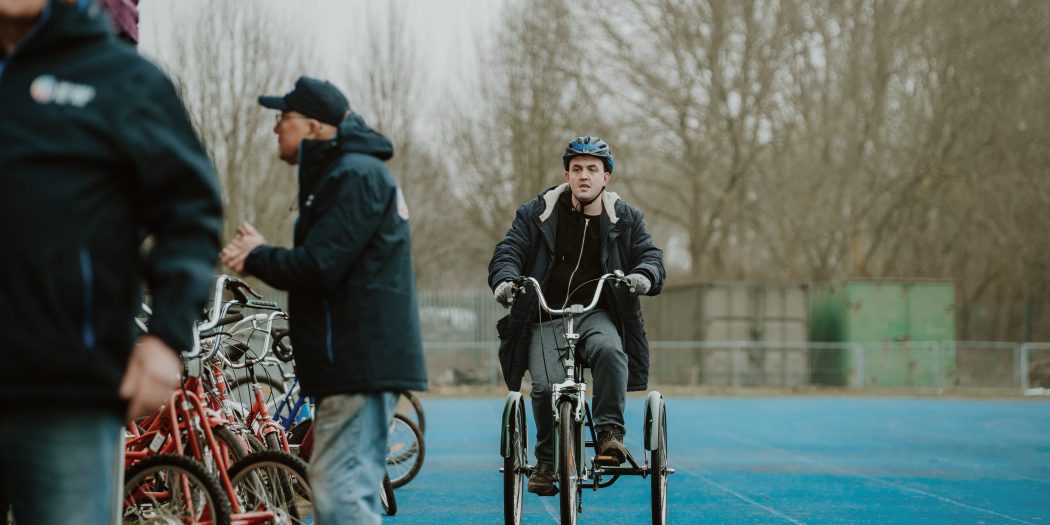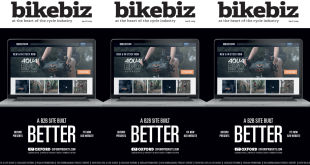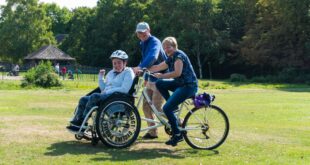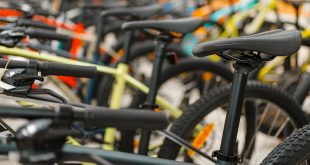This piece first appeared in the April edition of BikeBiz magazine – not subscribed? Get a free subscription to BikeBiz.
We talk to Ian Tierney, CEO at Wheels for All, about how their 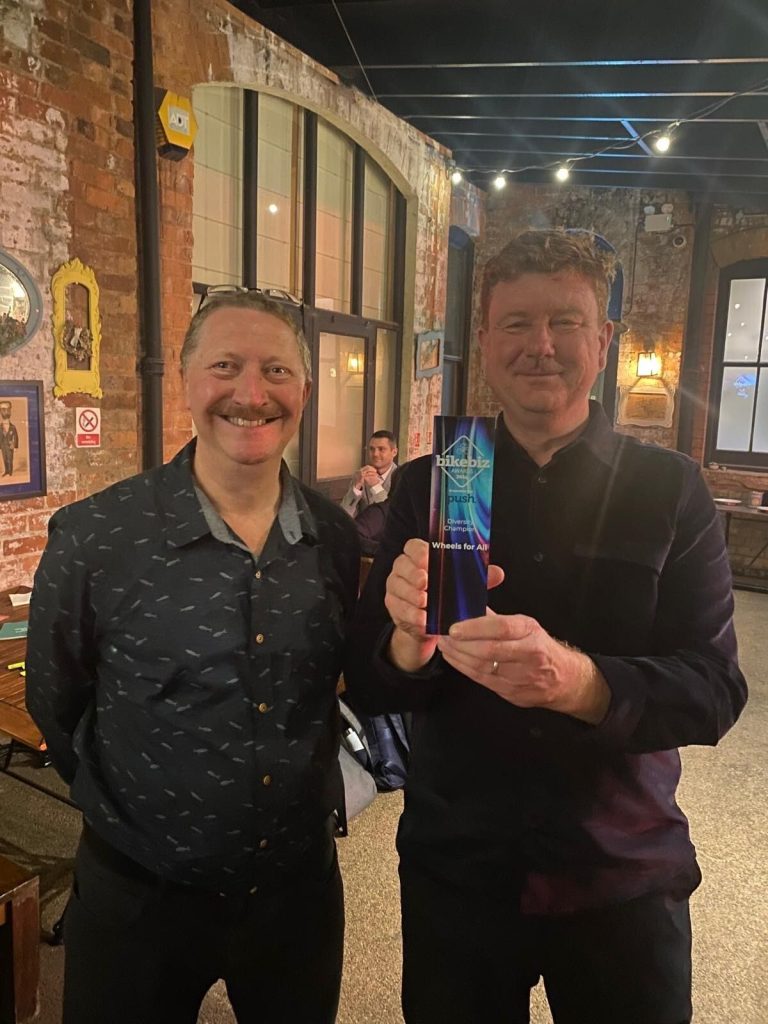 dedication to inclusive cycling is transforming lives, as they call on the industry to join them in making cycling accessible to everyone.
dedication to inclusive cycling is transforming lives, as they call on the industry to join them in making cycling accessible to everyone.
In 2024, Wheels for All won our BikeBiz ‘Diversity Champion’ award. As a charity that’s been running for over thirty years and spans many different sectors of the sport, from diversity to inclusion and everything from public health to transport, winning was humbling for them, explained CEO Ian Tierney.
From small beginnings, the charity has grown thanks to the dedication of everyone involved, and as Ian puts it, ‘everyone very much rolled up their sleeves and got on with it.’ The work they do, providing services to many people, started in Greater Manchester with the help of Chris Boardman, who helped launch their first session. Wheels for All helps people be active on their terms and helps them overcome barriers by listening to what they need to overcome them.
For those that might not be familiar with their work, in a nutshell, Wheels for All is a UK charity that promotes inclusive and accessible cycling through a range of community hubs, something they’ve expanded and taken learnings from, helping others set up their own across the UK.
“We’ve learned a lot in time and we’ve helped many organisations that have perhaps set up their own hub to get sustainability at the forefront, and you know, make sure that they have everything in place right through from risk assessments to DBS checks and all the necessary stuff for making sure that ultimately the end user, the participants, get the best service possible,” said Ian.
In his own words, Ian describes Wheels for All as “the largest provider of inclusive cycling opportunities in the country,” something he admits is a bold statement. By creating their hubs, they help break down the barriers to participation, especially for those who need the use of adaptive cycles. Things such as having no one to cycle with, nowhere to store a bike, and not being able to afford an adaptive bike are eliminated when accessing a hub. To the charity, long-term success means helping people make cycling part of their lifestyle, beyond the hubs. And for Wheels for All, it’s not only about the participant, it’s the carer, it’s the friend or family member ”they play a pivotal role in going back to the care home or the GP surgery or the hospital and say, I’ve just found a cycle that will work for you. Come on, we’ll go and cycle next week. And we have this across the country. And so there is this momentum, you know, and it’s a really good momentum that hubs are assets for that local community. We want them to be open more often, and if there aren’t any hubs in that area, we want to create that hub,” said Ian.
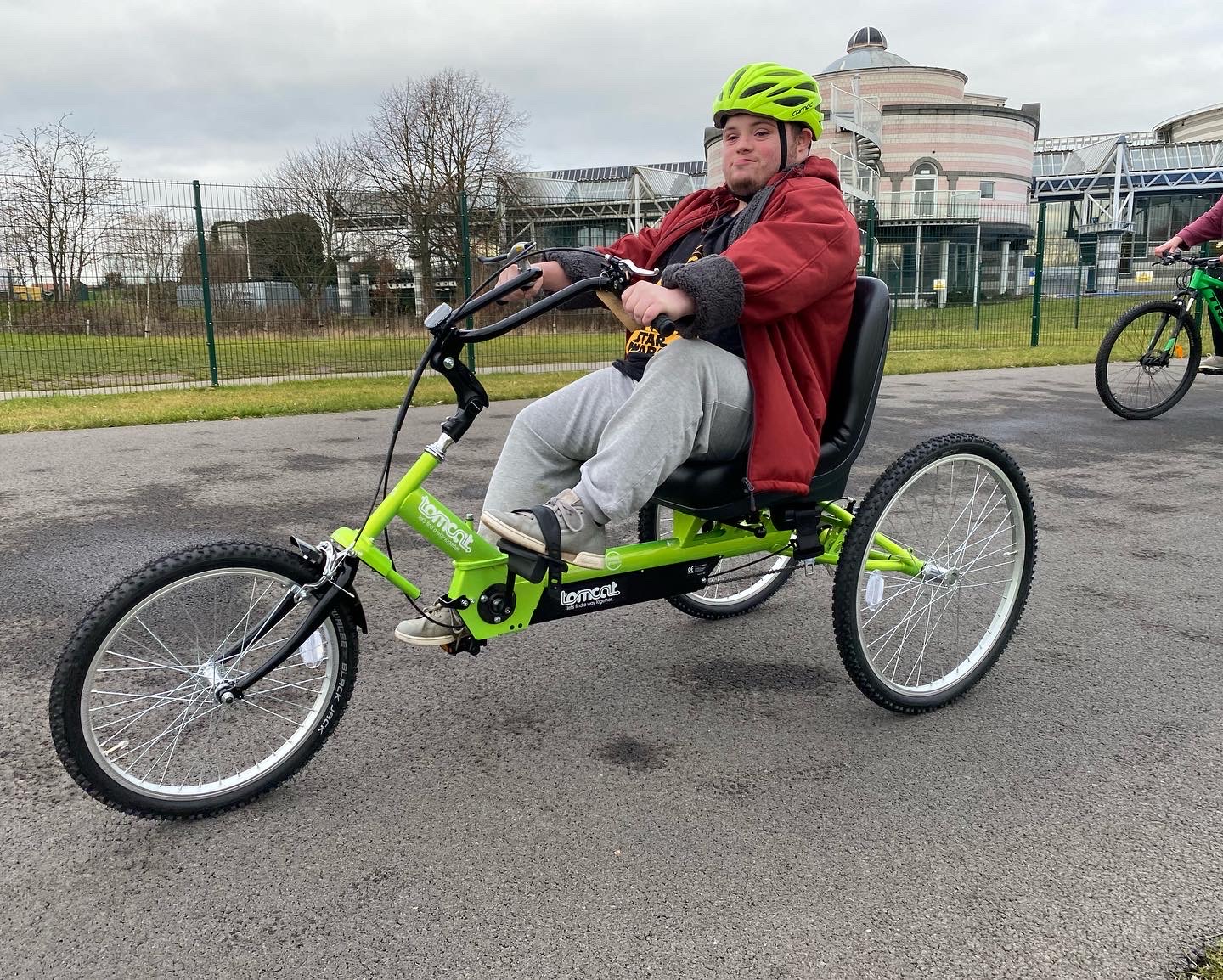
Wheels for All currently have 28 hubs across the country, but thanks to recent investment from Sport England, they’ve begun work on bringing together a national network of providers and through research, have identified an inclusive cycling landscape, pinpointing 164 places throughout the UK that offer inclusive cycling opportunities and are now working out how they can help those places adhere to a shared set of standards.
Through their work, they’ve built good relationships with manufacturers of adaptive cycles and had an impact on things like design based on feedback from riders, as well as introducing products to their community. But what they offer extends beyond riding, and for those who want to be involved in hubs, they offer training and mentorship. They’d like to have more industry involvement, putting out a call to action for those who may be interested in ways they can support the charity and its work. Another current project is the development of toolkits for engagement, but they are looking for wider industry support, “so whether the cycle industry could invest or bring forward any kind of workforce that can help with that toolkit to help with language and training techniques so that everyone can be comfortable with being active with people of all different abilities who perhaps have never had to do so in the past.
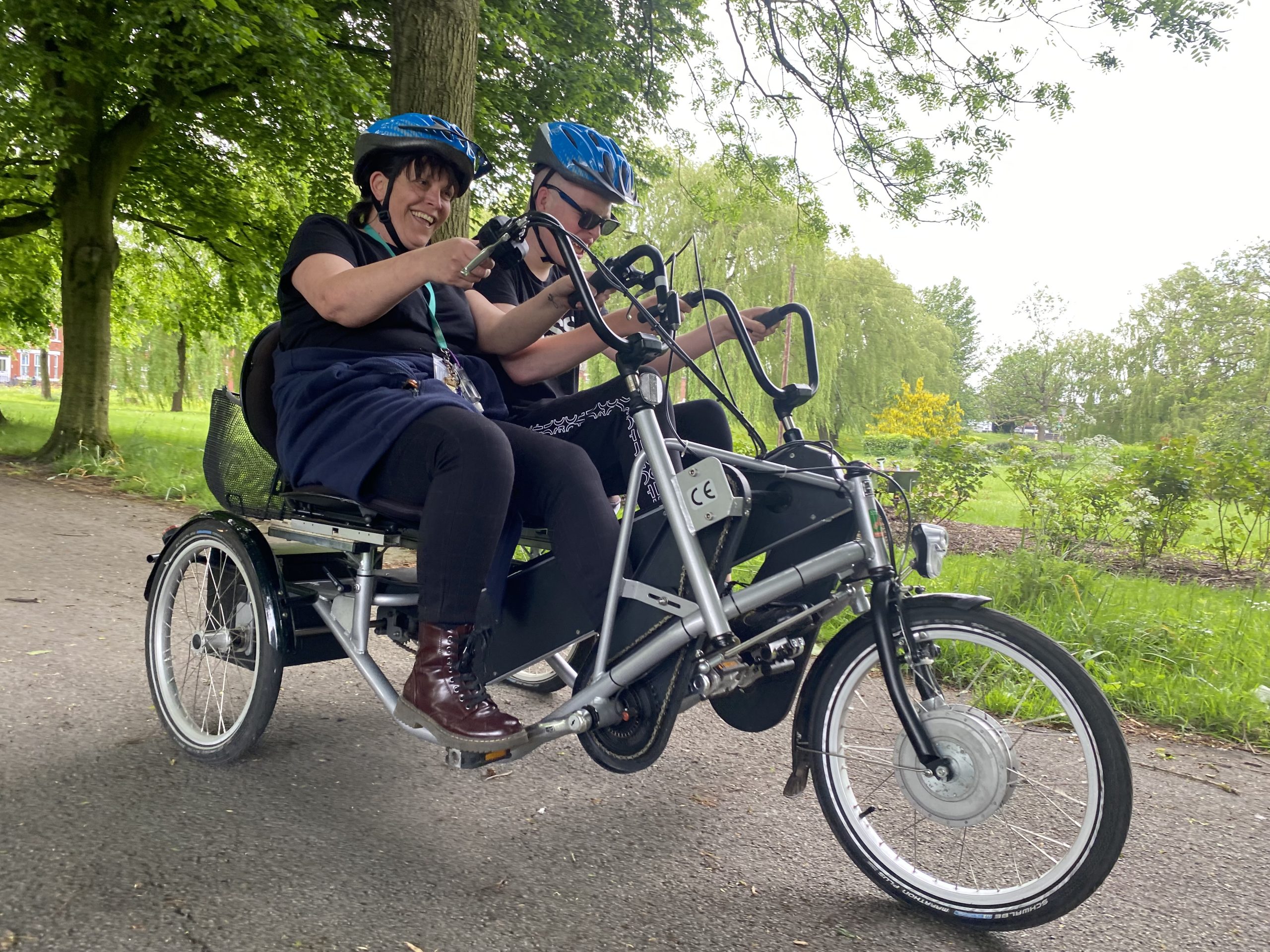
“I think there’s an opportunity to bring in more volunteers and anybody working in the cycle industry to connect with our local hubs. So that would be a really impactful thing if out of this we could get organisations who are readers of Bikebiz to come along to their local hub and find out what it is that we do, then absolutely brilliant because everybody knows someone that will benefit from the service,” he explained.
Everyone can appreciate the freedom of being able to cycle, something perhaps often taken for granted. For Wheels for All, their purpose is to allow people the opportunity to be active and improve their health and well-being. In terms of things the industry can do to promote inclusive cycling, it can be as simple as taking a small action to share imagery to depict everyone enjoying cycling. “I think that there’s lots of imagery that we can share with the cycle industry, which shows people like us. And what I mean by that is that other people will look and think, well, actually, I don’t have to dress up in Lycra. I don’t have to be in dayglow colours. I can just come along and rock up to my local hub, and I can just be like anybody else. I can be a part of it, and that’s crucial.”
One issue Wheels for All often comes up against is the ability to connect with the wider cycle industry. They would like to engage in forums or other avenues to update what they are up to and future plans. They’d like the ability to integrate further into communities to help address imbalances and work with others to help set up provision in different areas.
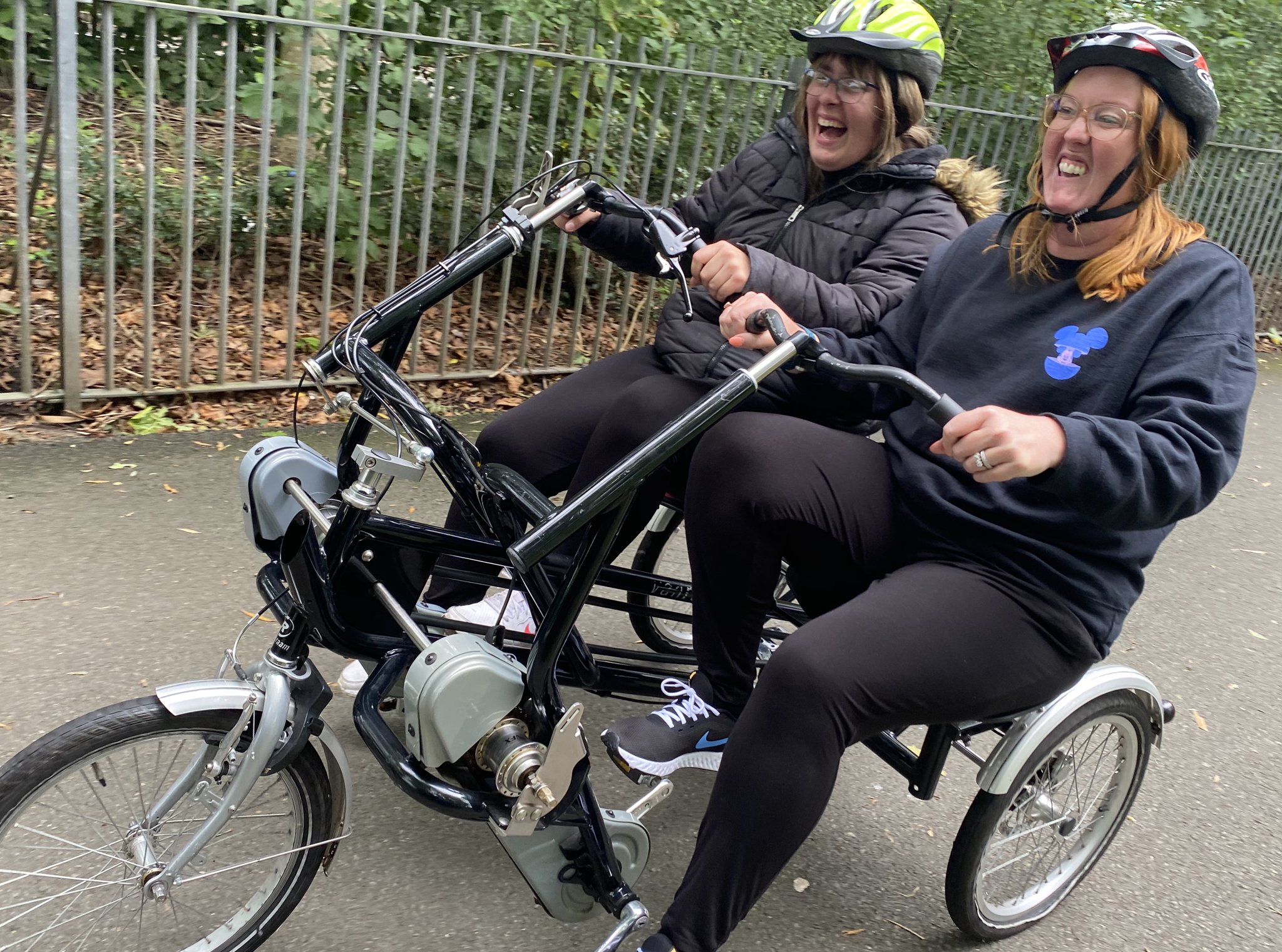
“If you look at our national network, there are massive imbalances of provision, the likes of the Northeast, the West Midlands, the Southwest. There might be partners that are part of the cycling industry that might want to help us come together and address this imbalance, help us with regional events, help us with funding for specific cycles for an area, and ultimately just cement the basics of creating long-term sustainability for more hubs, and that’s that’s something we want to do. We’re not just going to be doing this alone. We will bring other people with us, but it may need many people in the cycle industry who are closer to, you know, those local communities. We don’t know them everywhere,” explained Ian.
Currently, they only scrape the surface in terms of reaching people who could benefit from their services. Wheels for All wants to be part of the solution to inactivity. And it’s not just disability, people use their hubs for any number of reasons, from weight management to stroke support, cardiac rehab or dementia care. Users get the chance to access volunteer support and adaptive cycles, removing barriers to activity. And that’s not all, there’s the ability to bring mini hubs to users, be it a GP surgery, care home or school “we’ve had some real good experiences where we take a few bikes to a care home and we get the carers on and a lot of the residents on. It’s just a really good giggle, and everyone’s having good fun, and we’ll say, ‘Oh, you know, if you’d like to do this more often, then here’s the local hub.’ So, you do have to take it to the people. You have to get them thinking, ‘Oh, this isn’t so difficult and it’s easy to pedal,” Ian said.
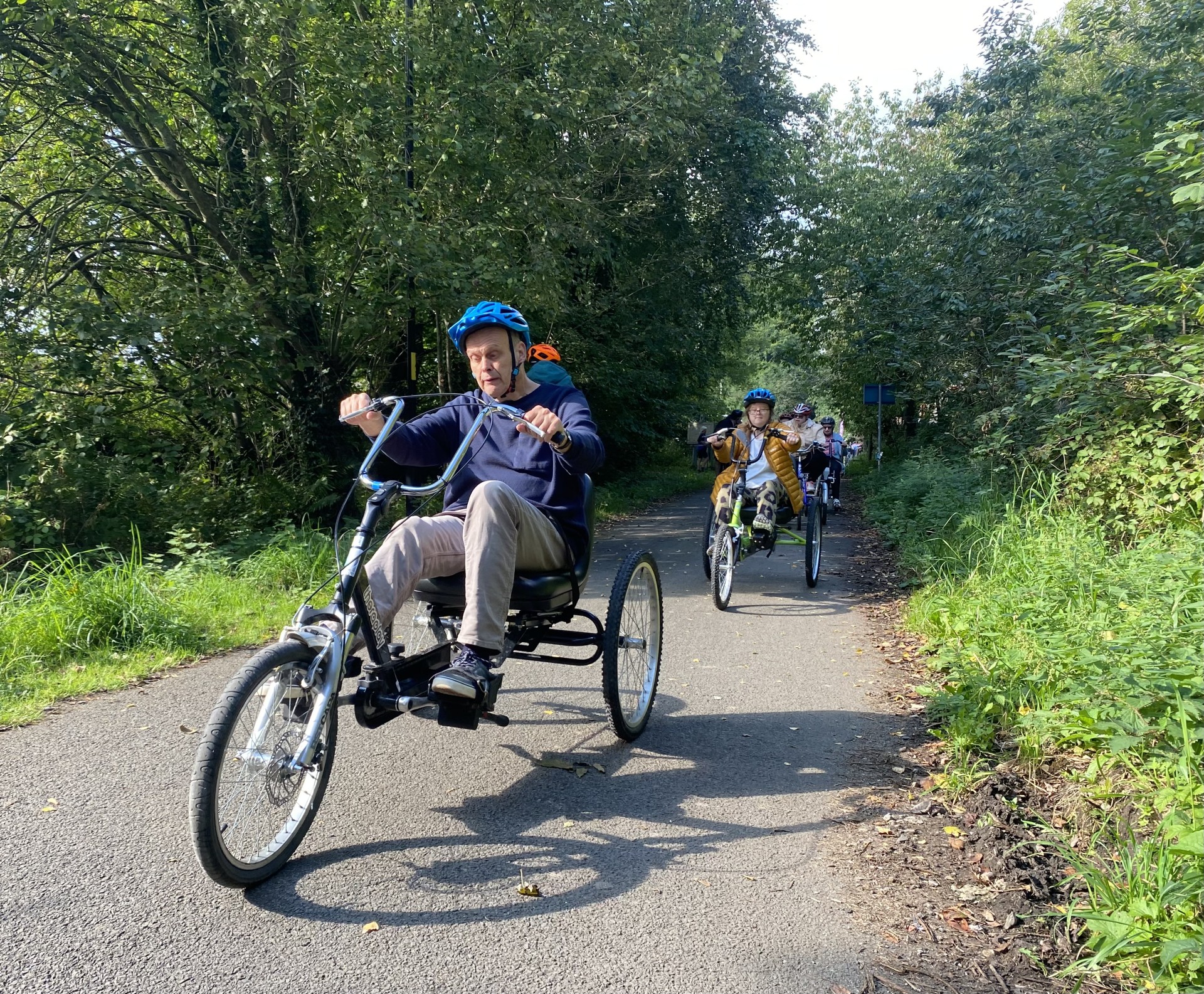
Ian, who has been with the charity for over 20 years, has big ambitions for Wheels for All. The goal is to create a quality hub in every local authority in England. The charity is currently mapping areas to implement services next, looking at regions with high numbers of deprivation, disability and long-term illnesses. But to achieve their goal is a multi-department effort, from adult social care to education and leisure. But, despite funding constraints and the typical frustrations of running a charity, they now feel like they are in a place to do more, to work with other organisations to address areas where there are no provisions. They now have a structure of regional models and supporting regions, and they want to grow.
In terms of next steps, Wheels for All is looking for partners to continue their journey. They’d like everyone to have the ability to experience the joy of cycling. “It’s important that we find as many partners as possible to come with us on this journey, and getting hubs open more often, getting more supporters, ideally, we’re always looking for ambassadors and patrons and anyone that wants to come with us and endorse what it is that we do. So there might be people in the cycle industry who are interested in how they can help, and I’m more than happy to chat with anyone.”
 BikeBiz Bicycle and cycling retail news
BikeBiz Bicycle and cycling retail news
